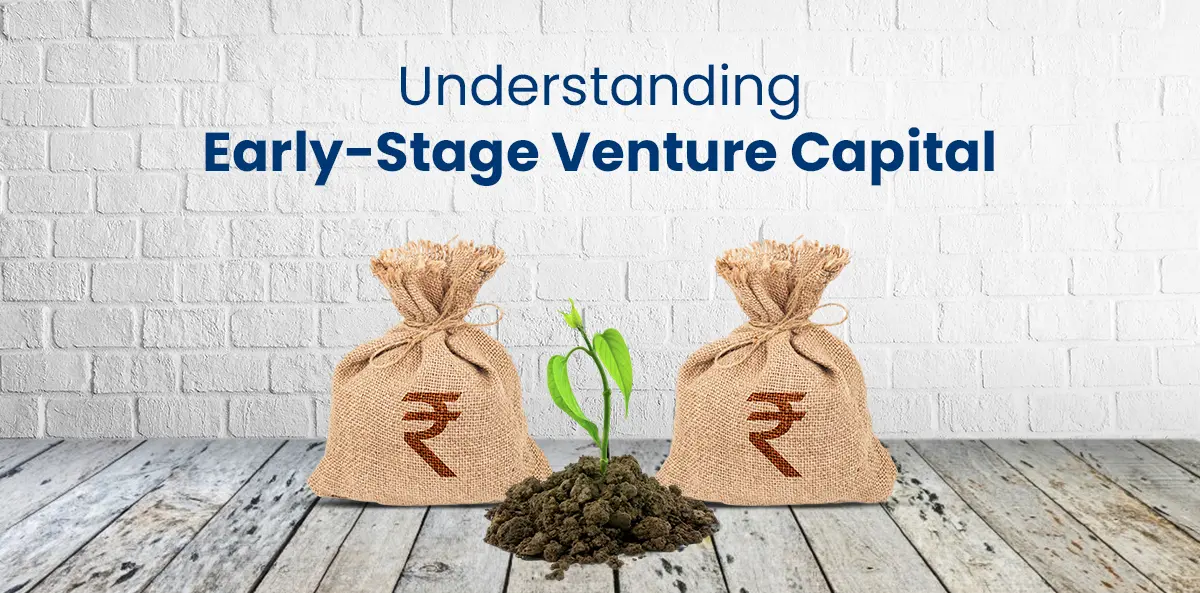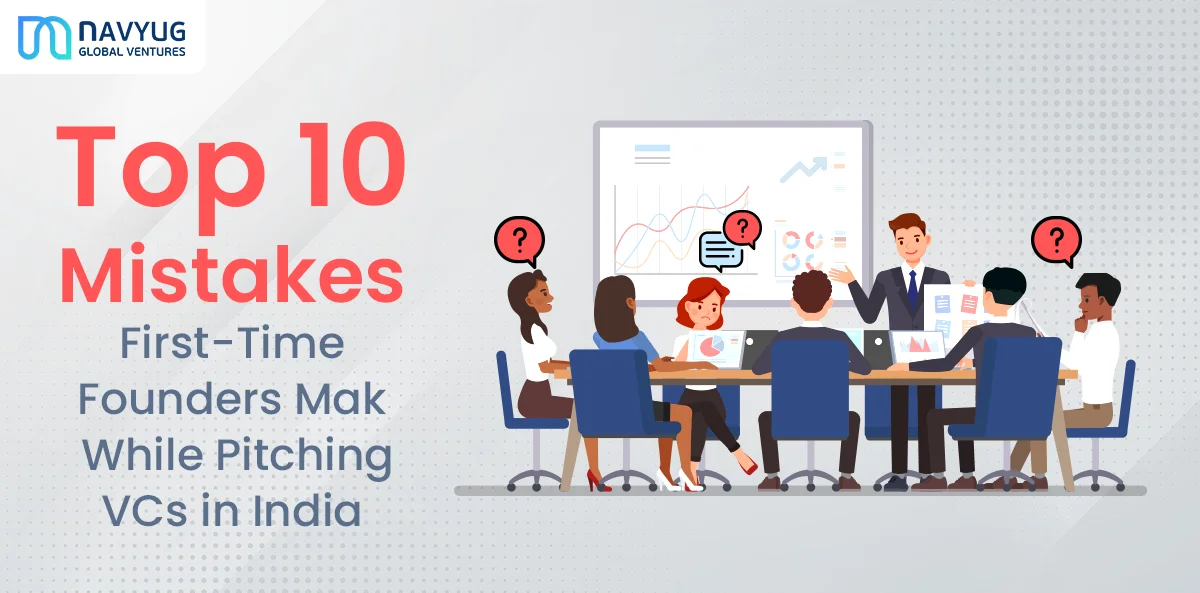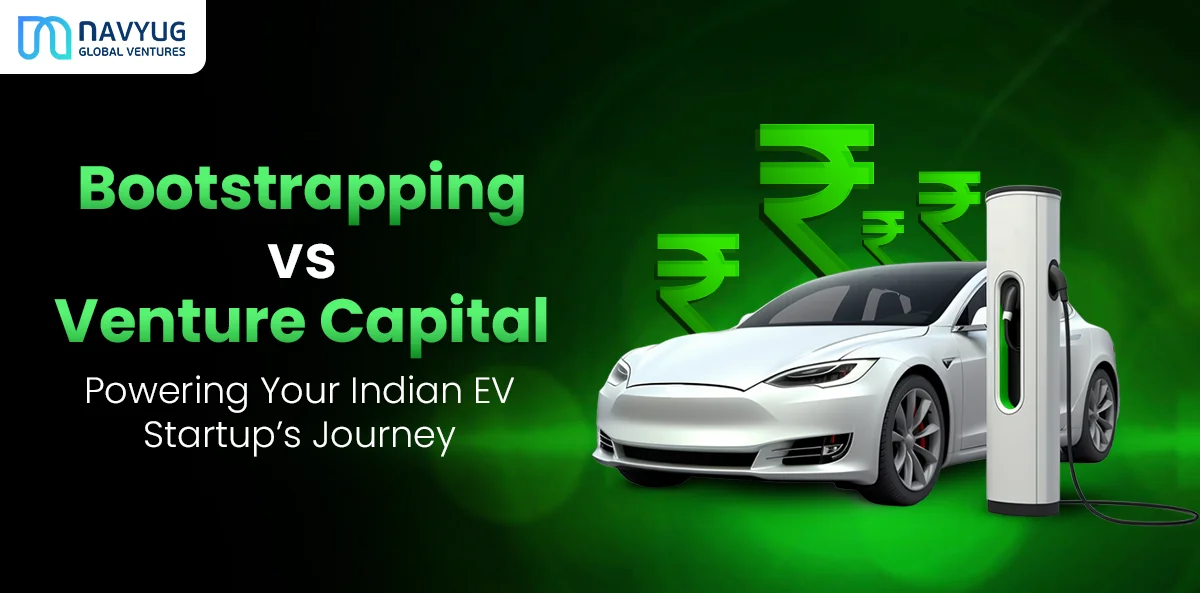What Is an Early-Stage Company?
Businesses typically fall into categories such as pre-seed, seed, early stage, and growth. At the seed stage, a company is in its earliest phase and may not yet be generating revenue. It’s in the process of raising funds to build a product or develop an idea. Investing at this stage can be high risk because the company is still trying to determine if its product or service is viable.
Early-stage companies are those that have developed a prototype or service model, tested their ideas, and now need capital to grow. These companies may have started generating revenue but often require significant investment from early stage venture capital to scale their operations. Navyug Global, one of the top early stage venture capital firms, specializes in providing funding for startups in technology solutions, consumer and retail, infrastructure development, and the energy sector, enabling them to further refine their products and expand.
In the early stage, companies focus on gaining customers and developing their business model. They need capital to fine-tune their operations and reach a breakeven point. Navyug Global recognizes the importance of early-stage funding and offers the resources companies need to move from a small customer base to a more stable and growing one.
In contrast, late-stage companies are more established, with a proven product and market presence. They are often preparing for an acquisition or public offering, and while investment here is less risky, the potential returns may not be as high as in the early stages.
Difference Between an Early-Stage and a Late-Stage Company
The main difference between early-stage and late-stage companies lies in their focus and development level.
Venture Capital in India
Early-stage companies are focused on acquiring customers. They’ve developed a sales strategy and are working toward reaching a breakeven point in cash flow. While they may be generating some revenue, they still rely on additional funding from institutional investors. This funding helps them invest in customer acquisition and continue developing their business.
At this stage, companies are in the process of moving from a small customer base to a more stable one. Although they have systems in place, they often adjust and improve their operations as they grow and learn.
Key Statistics and Trends:
Late-stage companies are already established and have demonstrated their viability. They typically offer a well-known product or service, have a strong market presence, and are generating positive cash flow.
These companies are more confident in their actions, often exploring new markets or expanding into related industries. Investors in late-stage companies might be looking for liquidity as the company prepares for an acquisition or an initial public offering (IPO).
What Is Early-Stage Capital?
Early-stage capital is the lifeblood of growing companies, providing the financial support needed to scale operations and refine products or services.
Navyug Global, a prominent early stage venture capital firm in Chennai that focuses on investing in companies that are entering this phase, particularly in key industries such as:
- Technology Solutions: From AI-driven innovations to software platforms, Navyug Global helps tech startups move from concept to scalable products.
- Consumer & Retail: The firm provides funding for businesses in consumer goods, e-commerce, and retail, helping them reach larger audiences and grow revenue streams.
- Infrastructure Development: Navyug Global backs companies that focus on critical infrastructure projects, enabling them to play a key role in urban development and modernization.
- Energy Sector: In the energy field, Navyug Global supports startups that are innovating in areas such as renewable energy, sustainable solutions, and efficient resource management.
How Early-Stage Capital Works
The capital raised during this stage is typically used for developing and refining a product or service, marketing it, and scaling up commercial production. It can also be directed toward building a sales team and expanding the company’s customer base.
Investors often choose the early stage as their entry point because, while risks are still present, they may be lower than in the seed stage. Seed-stage investments usually carry higher risks, as the company may still be figuring out if their idea is viable. However, these early investors are compensated for the risk with equity, stock options, or convertible notes in the company.
In contrast, early-stage investments often involve larger sums of money since the company already has a tested product or service and is aiming to scale. This phase can involve multiple rounds of funding, called series, where investors contribute further as the company grows.
Later Stage Investments
Late-stage capital is reserved for companies that are more mature and often already profitable. These companies have proven they can grow and maintain their business. Each investment stage comes with its own potential risks and rewards for both investors and companies.
Why Early-Stage Capital Matters
Early-stage capital supports a company’s efforts to refine its product, scale its business, and reach a broader market. Navyug Global not only provides the capital but also offers strategic guidance to help companies in these industries navigate challenges and accelerate their growth. Their focus on industries like technology, consumer markets, infrastructure, and energy allows them to play a vital role in shaping the future of these sectors.
Investing in Early-Stage Companies:
Although investing in startups carries some risk, the early stage is often when companies need funding the most, and investors have the chance to make a substantial impact. Navyug Global provides early-stage funding to companies that are positioned to grow but need additional resources to reach their full potential.
For investors, early-stage companies offer the opportunity for high rewards if the business succeeds. Firms like Navyug Global reduce some of the risks by carefully evaluating potential investments and focusing on industries with strong growth potential.
The Role of Venture Capital in India’s Startup Ecosyste:
India has become a global hub for startups, with a rapidly expanding ecosystem that fosters innovation across multiple sectors. In cities like Chennai, the growth of the startup culture has been significant, driven in large part by the increasing availability of early stage venture capital.
Chennai’s startup ecosystem is supported by a thriving mix of technology incubators, accelerators, and venture capital firms that focus on providing the necessary capital for early-stage companies. As part of the larger venture capital ecosystem in India, firms like Navyug Global contribute directly to local economic growth by investing in promising startups and supporting their efforts to scale.
Contribution to Local Economy
- Job Creation: By investing in startups, early-stage investors such as Navyug Global help create employment opportunities across sectors. These startups, in turn, contribute to the local economy by hiring talent, using local resources, and stimulating growth in ancillary industries.
- Fostering Innovation: Early-stage funding allows startups to experiment with new technologies and business models, particularly in key sectors like technology solutions and renewable energy. Venture capital enables these companies to develop groundbreaking products and services that can revolutionize their industries.
- Bridging Funding Gaps: One of the major challenges for startups is access to capital. Venture capital companies in India like Navyug Global bridge this gap by providing the financial support necessary for startups to take their ideas to market. This capital helps them refine their products, scale operations, and compete on a global level.
- Strengthening Key Industries: Navyug Global’s focus on sectors such as infrastructure development, energy, and consumer goods directly contributes to the growth and modernization of these industries. With venture capital backing, startups in these sectors can innovate, improve efficiency, and drive India’s economic development forward.
Investment Strategies of Early-Stage Venture Capital Firms
Identifying and investing in promising startups is a complex process that requires a combination of market understanding, risk management, and strategic foresight. Early stage VC firms like Navyug Global use a variety of strategies to identify companies with high potential for growth while managing the inherent risks that come with early-stage investments.
-Key Investment Criteria
- Market Potential: One of the first things early stage investors look for is whether the startup operates in a market with significant growth potential. Navyug Global focuses on industries like technology, infrastructure, and energy, where innovation can lead to substantial market disruption and high returns.
- Strong Founding Team: A startup’s success is closely tied to the strength of its leadership team. Venture capitalists like Navyug Global assess the experience, vision, and adaptability of the founders to ensure they have the ability to steer the company through its early, often turbulent, stages.
- Product-Market Fit: Early-stage investors need to see that the company’s product or service has real demand. Navyug Global evaluates whether the startup has a viable solution that meets market needs and has the potential for scalability. A working prototype or an early customer base often helps validate this.
- Scalability: Startups that have the ability to grow rapidly and reach a large market are more attractive to early stage venture capital firms. This scalability is critical for investors to maximize returns. Navyug Global often invests in companies with products or services that can be easily expanded to new markets or adapted for larger customer bases.
- Financial Health: Even at an early stage, venture capitalists look at the company’s financial structure, revenue models, and growth projections. Navyug Global seeks startups with a clear path to profitability or at least a plan for how they will become financially sustainable in the long term.
Balancing Risk and Reward
Investing in startups, especially at the early stage, comes with high risks. Many startups may not survive their first few years, but those that do can generate significant returns. Navyug Global employs several strategies to manage this balance:
- Portfolio Diversification: One of the key ways early stage VC firms mitigate risk is by diversifying their investments across multiple sectors and companies. Navyug Global invests in a range of industries, such as technology, retail, and energy, ensuring that their portfolio isn’t overly dependent on the success of a single company or market.
- Stage-Based Funding: Navyug Global often provides funding in phases, known as series funding (e.g., Series A, Series B). This allows the firm to assess a startup’s progress at each stage before committing additional capital. It ensures that the company is meeting key milestones and reduces the risk of significant losses.
- Active Involvement: Beyond providing capital, early stage investors often take an active role in helping startups succeed. Navyug Global provides mentorship, guidance, and networking opportunities, ensuring that the startups they invest in are well-positioned for growth. This hands-on approach helps reduce the risk of failure while increasing the chances of success.
- Exit Strategy Planning: Navyug Global carefully considers potential exit strategies from the start. Whether through an acquisition, merger, or initial public offering (IPO), the firm evaluates how and when it can maximize returns from each investment. Planning for exits early helps ensure they can capitalize on successful investments at the right time.
Conclusion
Venture capital plays a vital role in nurturing India’s startup ecosystem, particularly in cities like Chennai, where firms like Navyug Global are at the forefront of fostering innovation and economic growth. By providing early-stage funding and strategic guidance, early-stage VC firms help startups overcome initial challenges and scale their operations. Navyug Global’s focus on key sectors such as technology solutions, consumer goods, infrastructure development, and energy positions them as a crucial player in driving progress in these industries.
Our investment strategies—rooted in identifying market potential, supporting strong founding teams, and balancing risk through diversification and active involvement—ensure that both startups and investors benefit from their partnerships. As the venture capital ecosystem in India continues to grow, firms like Navyug Global will remain essential in shaping the future of innovation and contributing to the country’s economic development.
FAQs
What is the difference between early stage and late stage venture capital?
Early-stage venture capital targets startups that are in the process of developing their products, establishing their teams, and proving their market potential. In contrast, late-stage venture capital invests in companies that have already shown substantial growth, established significant revenues, and have a proven, scalable business model.
What are the stages of venture capital?
Venture capital financing typically progresses through five main stages:
- The Seed Stage
- The Startup Stage
- The First Stage
- The Expansion Stage
- The Bridge Stage
What is the lifecycle of venture capital?
Venture capital funds typically have long durations, starting from the first closing and lasting 8-10 years. Fund managers often seek predetermined extension periods (usually 2-3 years) to facilitate a smooth exit from all investments. Early termination can also occur based on specific trigger events.




